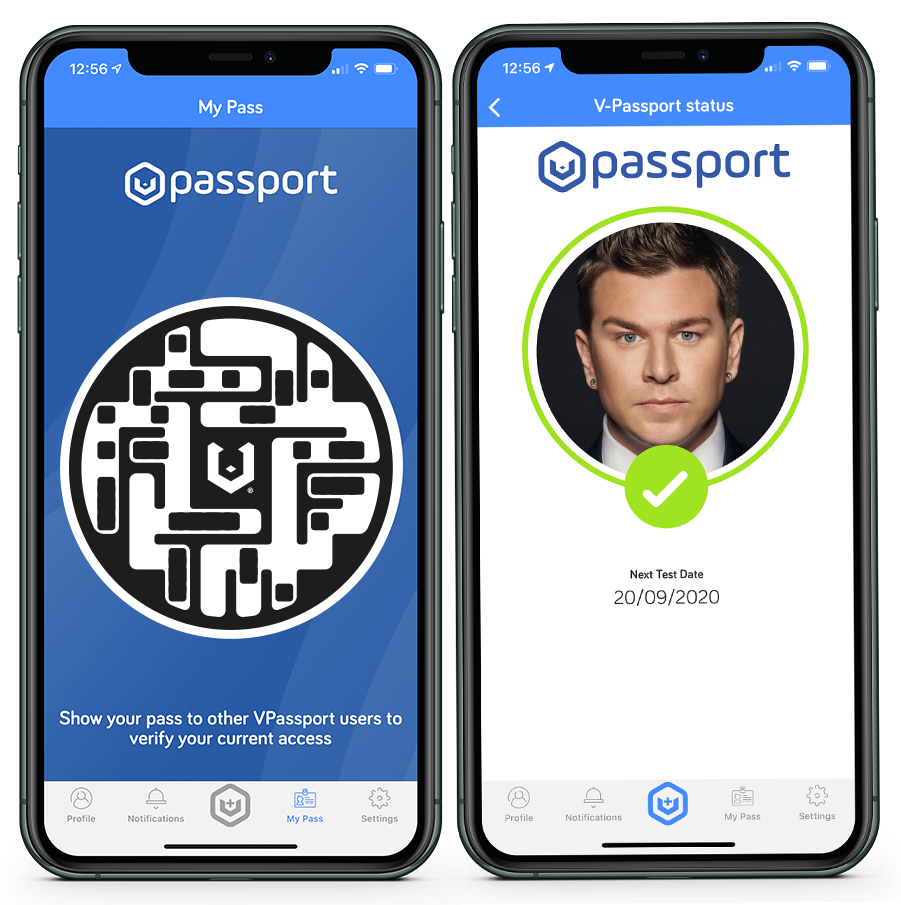Albert Bridge House Skyscrapers Receive Planning Approval
Proposals for a major mixed-use project on the southern quayside of Manchester’s River Irwell have received planning approval. Albert Bridge House...
Read Full ArticleAs a British tech firm launches its secure five in one digital health passport, might this become the solution for reviving global economies?
According to a survey conducted by Harris Interactive for Sodexo, half of British travellers feel ready to return to airport lounges when they reopen, but the specific practicalities of safe leisure and business travel are still unknown.
One potential solution is the use of so-called health passports, essentially a digital certificate authenticating a person’s identity, their COVID test results and statement of their vaccinations.
VST Enterprises, a Manchester-based technology company, has confirmed it has developed the worlds first secure five In one digital health passport and wallet. V-Health Passport™ is dubbed a “crucial safe technology enabler” in reviving the economy, home lives and helping governments, business and industry to start returning to work and normality.
The V-Health Passport™ also features its own contact tracing capability using anonymised data. The system is GDPR compliant and acts like “self-sovereign identity”, meaning a citizen’s personal data is protected and they choose what they want to share and with whom they want to interact or authorise.
A citizen will be able to share their health pass and confirm their COVID test status, or present their vaccination record. They will also be able to show their credit score, work permit or visa, scan their travel or event pass.

Picture: an image of a smartphone screen showing what a health passport might look like
Louis-James Davis, CEO of VST Enterprises, claims that the V-Health Passport™ is the most secure digital health passport and wallet in the world, and warns of the potential dangers and reliance on using QR code scanning technology within any form of health passport.
Their use could lead to potential security breaches of personal data and information, he argues. Much like the case earlier this year of the former Australian Prime Minister Tony Abbot, whose Quantas airline boarding card was hacked and details revealed including his passport number, mobile phone number and Qantas airline messages referring to the former PM.
“QR codes were originally developed as a scanning technology for close proximity car parts tracking, a world away from identity and banking use cases and now digital health passports. It was then used to skip the input of websites in marketing and promotional purposes. They were simply never designed with security or privacy in mind… they are simply not fit for purpose and should not be used at all in any form for delivery of sensitive information, travel or event tickets or health passport,” Davis said.
QR codes do, of course, have the potential to be cloned and redirected to other information points or websites. Hackers can exploit this by putting a fake QR code over a genuine QR code. The V-Health Passport™ combats this by using a call and response system of information between the code and web platform to verify the location of the code, user ID and time and date, and other information.
In terms of using evidence of having COVID as a “risk-free certificate”, the World Health Organization is clear on its stance: there is not yet enough evidence.
They insist that there is currently no evidence that people who have recovered from COVID-19 and have antibodies are protected from a second infection. Therefore the idea of an immunity passport to allow individuals to travel or to return to work assuming that they are protected against re-infection is not advised.
Picture: a photograph of a person sitting on a suitcase
Article written by Ella Tansley | Published 08 December 2020
Proposals for a major mixed-use project on the southern quayside of Manchester’s River Irwell have received planning approval. Albert Bridge House...
Read Full ArticleSir Robert McAlpine has been appointed as Construction Manager for Therme Manchester, the UK’s first city-based wellbeing resort and the largest thermal pool...
Read Full ArticleArrow Capital Partners has appointed VolkerFitzpatrick as the main contractor for a 327,000 sq ft speculative logistics development in Bolton. Arrow Point Bolton...
Read Full ArticleManchester City Council has approved a planning application for a £360 million landmark development featuring a hotel, restaurant, and the UK’s first...
Read Full ArticleWates has won the Category B fit-out contract for the First Street Hub in Manchester. Now that BAM has delivered the main build, Wates’ fit-out and...
Read Full ArticleAn FM firm that launched in the summer of 2024 has won a contract to manage security services at Deansgate Square in Manchester. Game FM is a Manchester-based...
Read Full ArticleA new government office building will be constructed on a former retail park site in Manchester, accommodating 7,000 new and existing civil service roles. The...
Read Full ArticleOne in four digital systems used by central government are outdated, costing the public sector £45 billion in productivity savings. This figure equates to paying...
Read Full ArticleIn Part 3 of our cyber security Q&A, Sheldon Reynolds talks us through the danger of reusing passwords and what happens on the dark web. According to data...
Read Full ArticleThe cyber threat landscape is evolving at an alarming rate, and there's a new player in town that's causing mayhem in inboxes: impersonation attacks. In this...
Read Full Article